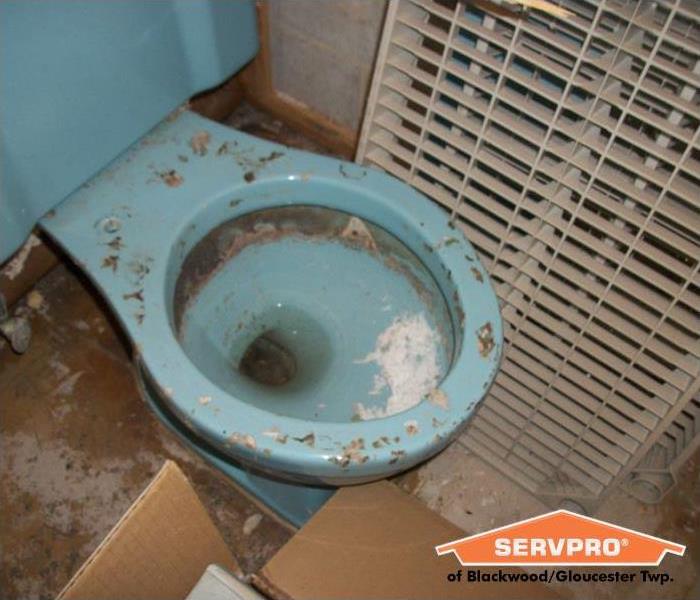Managing Sewer Damage
4/10/2019 (Permalink)
Cleaning up areas of your home after flooding and sewer damage is awful no matter what, but cleaning up the bathroom can be especially tedious. If you ever face a sewage backup in your bathroom, there are a few things that are helpful to know to speed proper cleanup and ensure a safe and sanitary home in Blackwood/Gloucester Township.
Call for Help
If you suspect you have damaged sewer lines, call your sewage company to schedule an inspection. To protect your home from future mold or rot issues after a toilet overflow, call the experts at SERVPRO of Blackwood/Gloucester Township. Only with the help of professional water removal specialists can you rest assured that floodwater has not crept into places you can’t see to wreak havoc.
Dry the Area
Though you may be tempted to sanitize your bathroom immediately after a toilet overflows, you should not do so before you start drying out the affected area. Whether you are dealing with a flooded toilet or an entire flooded basement, the first thing you should do is utilize heavy duty vacuums, drainage systems and fans to remove all the water.
Sanitize
After drying the area, sanitize it as best you can. Floodwater resulting from sewer damage can be toxic, so be thorough in your cleaning processes. Once the area is dry from the first round of sanitizer, you should plan to disinfect it one more time.
Dehumidify
The presence of excess water in a bathroom often welcomes lingering humidity, which only encourages mold growth in spaces affected by sewer water. During the process of drying, sanitizing and restoring, you should be sure that a dehumidifier is always running.
Cleaning up the aftermath of sewer damage doesn’t have to be a nightmare. By getting ahead start on the problem and calling in the professionals, you can have your home clean and dry again in no time.
Call SERVPRO of Blackwood/Gloucester Township 24/7 for water emergencies. 856-227-7800
We are Here to Help make it "Like it never even happened"





 24/7 Emergency Service
24/7 Emergency Service
